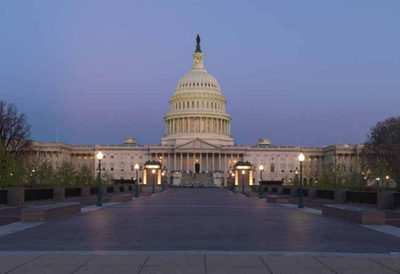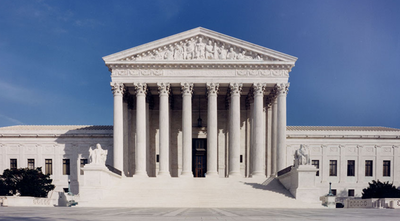Student designs to restore
American founding ideals
|
Throughout our history, prominent leaders have spoken about the vital need to build democratic institutions preserved by generations of vigilant and well-informed citizens.
But trust in these democratic institutions has declined as attempts to reinforce our founding ideals with structural reforms get mired in political polarization. Project CivicsWorks is research-based contest in which high-school civics students design institutional reforms intended to restore founding ideals of the American republic at the national, state or local levels. In 2024, student participants in Project CivicsWorks will present their blueprints for reforming institutions of government in an online e-showcase format that will be available on May 23, 2024. |
2024 e-Showcase
Timeline
• Civics teachers can email pdfs of the slides for their students' Project CivicsWorks displays to [email protected] by Sun, May 19, 2024.
• Up to two Project CivicsWorks displays per teacher.
• Project CivicsWorks e-Showcase on May 23, 2024.
• Up to two Project CivicsWorks displays per teacher.
• Project CivicsWorks e-Showcase on May 23, 2024.
How to make your Project CivicsWorks
You and up to one other student partner are invited to create a slide presentation (up to 10 slides including a title slide and a works cited slide) that fulfills the following:
A. Present a claim and an institutional reform that you can research
- Describe a reality in American government and politics that falls short of a U.S. founding ideal and connect this with an institutional reform of federal, state or local government that could restore this democratic ideal.
Ideas for Founding Ideals include:
• Popular sovereignty
• Rule of law
• Individual liberty
• Representative government
• Pluralism
• Separation of powers
• Checks on abuses of government
• Equality of Opportunity
• Federalism
• Limited government
• Majoritarianism
• Protection of minority rights
• Private property rights
• Due Process rights
• Criminal justice rights
• Protection of civil society groups
Potential Institutional Reforms include, but are not limited to:
• Gerrymandering reform
• Party nomination process reform
• Term limits
• Pres. nomination process reform
• Campaign finance reform
• Electoral system reform
• Strengthened bicameralism
• Electoral college reform
• Voting rights reform
• Strengthened checks and balances
• Enhancement of private property rights
• Criminal justice reform
B. Describe the reform and its intended outcome
- Support the argument using relevant evidence. Be sure to include a reference to at least one US founding document (Declaration of Independence; Articles of Confederation; Brutus I; U.S. Constitution; Federalist 10; Federalist 51; Federalist70; Federalist 78; and MLK's Letter from a Birmingham Jail.)
C. Describe the process and/or support of implementing the institutional reform
- Use academic research and/or connect with professors who have studied similar reforms.
- Collect survey information and/or speak with leaders who would be affected by reforms or who could help implement reforms.
D. Describe an opposing argument and a response that refutes this argument
- Include potential obstacles to implementing this reform.
- Include a description of the opposition's argument and your response to this opposition.
E. Works Cited
• Cite all sources (including visuals) and include a full bibliography.
• Minimum citations: Reference to at least 1 of the 9 foundational documents; 2 academic and/or governmental leadership sources; 1 visual of data or infographic. Optional: Survey information.
• Limit of two projects per civics teacher. E-Showcase publishing date of May 23, 2024. Civics teachers should email pdfs of the presentation slides to [email protected] with student and school information.
SEE RULES PAGE FOR SPECIFIC PROJECT RULES.
A. Present a claim and an institutional reform that you can research
- Describe a reality in American government and politics that falls short of a U.S. founding ideal and connect this with an institutional reform of federal, state or local government that could restore this democratic ideal.
Ideas for Founding Ideals include:
• Popular sovereignty
• Rule of law
• Individual liberty
• Representative government
• Pluralism
• Separation of powers
• Checks on abuses of government
• Equality of Opportunity
• Federalism
• Limited government
• Majoritarianism
• Protection of minority rights
• Private property rights
• Due Process rights
• Criminal justice rights
• Protection of civil society groups
Potential Institutional Reforms include, but are not limited to:
• Gerrymandering reform
• Party nomination process reform
• Term limits
• Pres. nomination process reform
• Campaign finance reform
• Electoral system reform
• Strengthened bicameralism
• Electoral college reform
• Voting rights reform
• Strengthened checks and balances
• Enhancement of private property rights
• Criminal justice reform
B. Describe the reform and its intended outcome
- Support the argument using relevant evidence. Be sure to include a reference to at least one US founding document (Declaration of Independence; Articles of Confederation; Brutus I; U.S. Constitution; Federalist 10; Federalist 51; Federalist70; Federalist 78; and MLK's Letter from a Birmingham Jail.)
C. Describe the process and/or support of implementing the institutional reform
- Use academic research and/or connect with professors who have studied similar reforms.
- Collect survey information and/or speak with leaders who would be affected by reforms or who could help implement reforms.
D. Describe an opposing argument and a response that refutes this argument
- Include potential obstacles to implementing this reform.
- Include a description of the opposition's argument and your response to this opposition.
E. Works Cited
• Cite all sources (including visuals) and include a full bibliography.
• Minimum citations: Reference to at least 1 of the 9 foundational documents; 2 academic and/or governmental leadership sources; 1 visual of data or infographic. Optional: Survey information.
• Limit of two projects per civics teacher. E-Showcase publishing date of May 23, 2024. Civics teachers should email pdfs of the presentation slides to [email protected] with student and school information.
SEE RULES PAGE FOR SPECIFIC PROJECT RULES.



